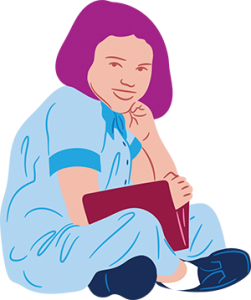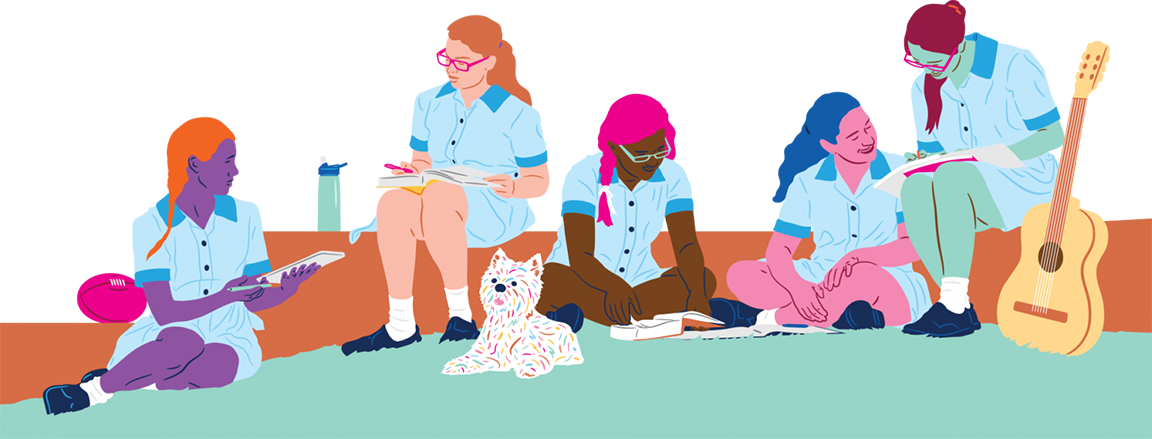The Principal outlines the School’s updated Smart Devices Policy and our commitment to digital wellbeing through clear and consistent smart device expectations across the School.

Recently, Audrey C of Year 5 qualified to compete at the Eastern Metropolitan (Primary) Track and Field Championships in the 200-metre and 800-metre events which was a fantastic achievement. On Thursday Audrey competed at the championship and experienced considerable success. Audrey came first in the 800-metre event and second in the 200-metre event. These two outstanding performances give her the opportunity to now compete at the State Track and Field Primary Boys/Girls Championships on Wednesday 6 November at the Lakeside Stadium. As a school community, we are very proud of Audrey’s efforts and wish her all the best on the for her events at the Championships.
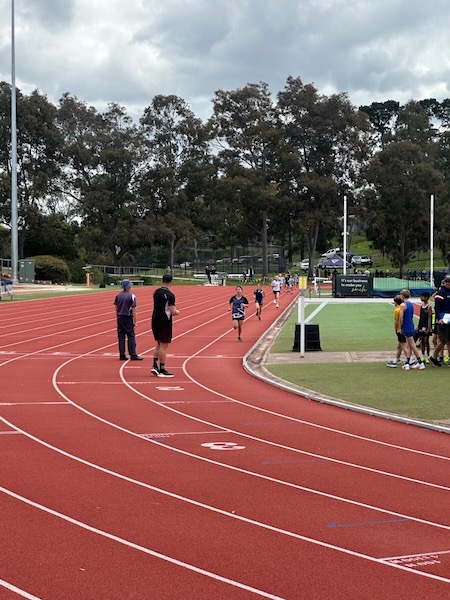
Over many months our Foundation – Year 6 students have worked tirelessly in preparation for our 2024 Junior School Production – Disney’s The Lion King JR. This special performance is taking place over two nights next week on Thursday 31 October and Friday 1 November. I would like to encourage all families to bring along their extended family members and friends for these two significant events. I look forward to seeing everyone next week at Barabara Sutton Hall.
Paul Donohue
Head of Junior School
The future belongs to young people with an education and the imagination to create.” — Barack Obama
Arts education at the ELC has always played a fundamental role in how children explore creativity and develop their sense of identity. Through musical, dramatic and imaginary, movement and visual artistic endeavours, teachers and educators provide collaborative and individual experiences that empower children’s learning and play.
On Thursday 24 October, the ELC opened its doors to directors and educators from the Independent Primary Schools Heads of Australia (IPSHA) Early Childhood community, inviting them to explore and engage with how we integrate the arts into our curriculum and teaching practices.
Our special guest presenter, Jennifer Stevens Ballenger from La Trobe University drew on research that had been conducted by La Trobe University and the University of Melbourne on how the ELC used art-based pedagogies to inform their teaching and learning. The event was a remarkable opportunity for educators to witness firsthand the transformative power of arts education in shaping children’s learning experiences. By showcasing our art-based pedagogies, we reaffirmed our commitment to fostering creativity and curiosity in every child. As Dr Stevens Ballenger highlighted, the collaborative efforts of the ELC and our partner universities illustrate how integrating the arts into our curriculum not only enriches the educational landscape but also nurtures a vibrant community of learners.
In the spirit of Sir Ken Robinson, who famously emphasized that “creativity is as important as literacy,” we recognize that inspiring creativity is essential for nurturing critical thinkers and problem-solvers. As we continue this journey, we aim to empower both educators and students to embrace the arts as a vital pathway to understanding, and learning.
Esther Wong
Early Learning Coordinator
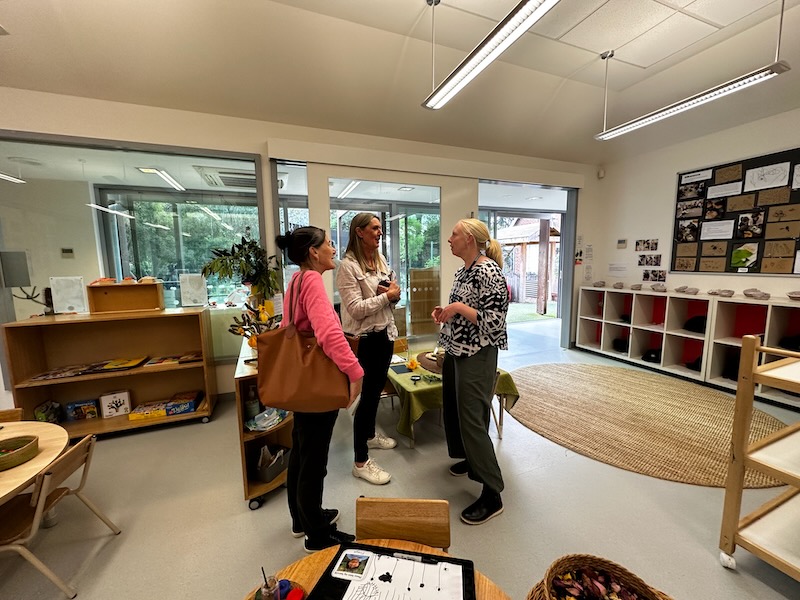
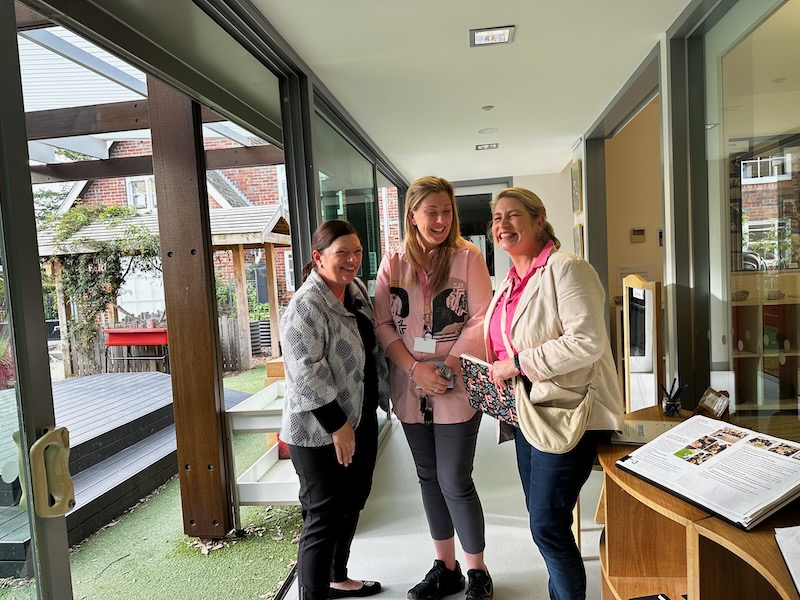
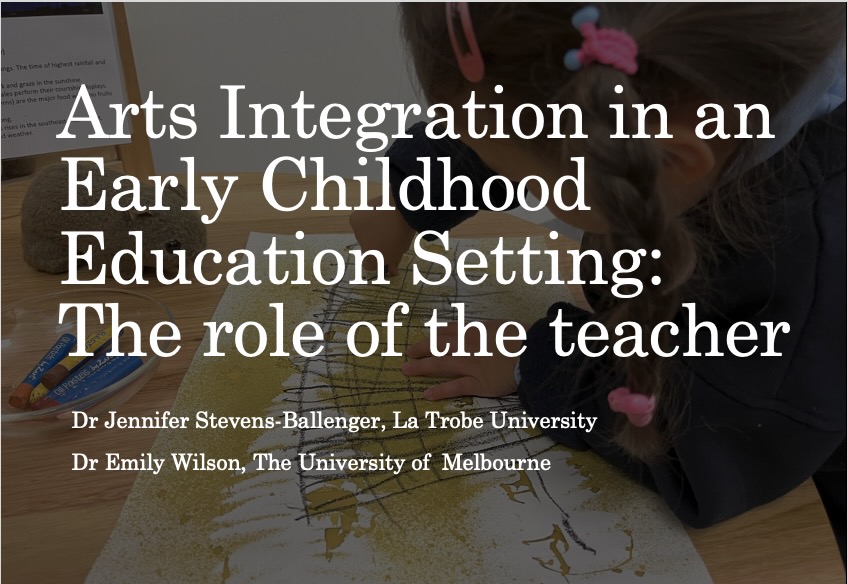
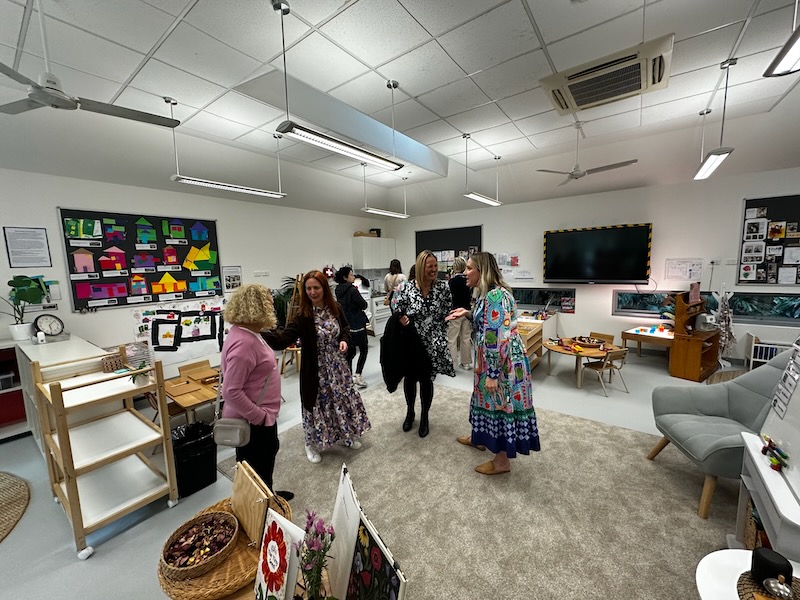
Our young, aspiring and inspirational Year 5 Ormiston leaders welcomed people from across our community to their Leadership Symposium.
Beginning in Term 3, Year 5 students have been learning about leadership through an inquiry project. In addition to attending an incredible Burn Bright incursion, students interviewed their families and sought their perspective on leadership. The students wrote about their strengths and what they can continue to do to become their Best Selves.
Futhermore, students acted as researchers and investigators to better understand leadership in our community. They interviewed a number of Year 10 leaders, Mrs Dunwoody and Mrs McClure. They discovered that there are many notable leaders that show passion and commitment to their vision, whilst also making a plan to achieve their goals. The Year 5 students then commenced exploring, drafting, conferencing, editing and publishing their learning. The students presented their understanding of leadership and captured their initial thoughts and further insights in their Learning Journals.
After the conclusion of the Leadership Symposium, students reflected upon their learning and have set future learning goals. For several students, they want to improve on their ability to ‘Think We, Not Me’ because, when they are working in a team, they want to consider how others would feel.
The students would like to thank their parents for their support during this project. They expressed their gratitude for their loved ones because it was an opportunity to showcase their learning and achievements. All the students should be extremely proud of their efforts throughout this project.
Thank you to all who visited, asked questions, and gave feedback.
Craig Goodwin and Fiorella Soci
Year 5 Classroom Teachers
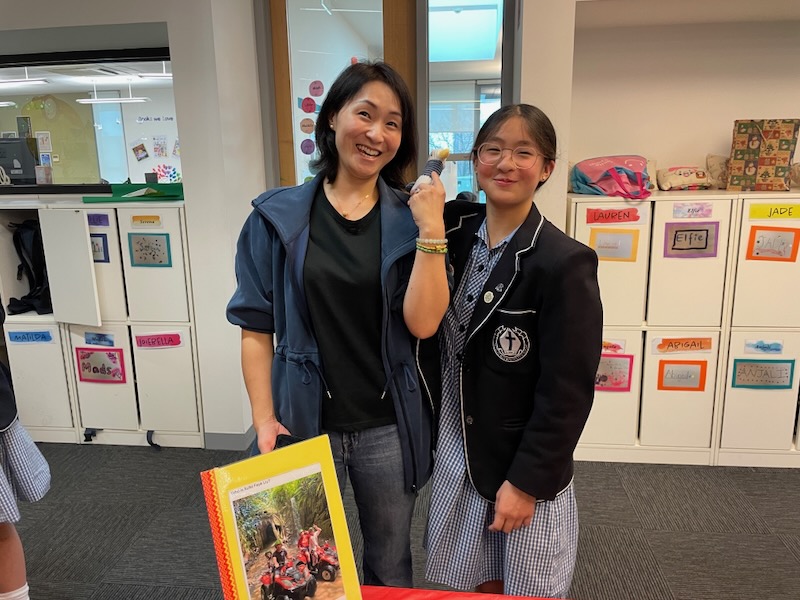
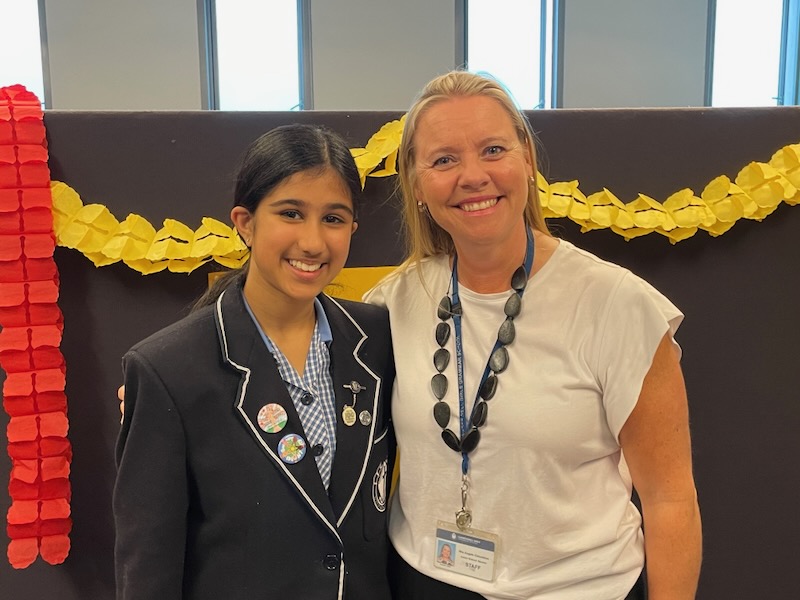
Our student wellbeing program across Junior School is called Being Respectful and Valuing Everyone (BRAVE). The program has been designed by the school to create a safe environment for student learning and is centred around fostering self-understanding and respect, and nurturing relationships across the community through play-based learning.
This term, Year 3 students are participating in practical games and learning activities related to problem solving. Problem-solving skills are essential for children as they help build critical thinking, creativity, and resilience. By learning how to approach challenges with a problem-solving mindset, children develop the ability to think independently and make thoughtful decisions.
To help them start identifying communication skills and cooperative behaviours, students were introduced to the ‘Knots’ problem-solving game. In groups of six, they formed a ‘human knot’ by joining hands. Each group had to find a way of undoing the knot, without letting go of each other’s hands, and without hurting anyone.
After playing the game, students were asked about the types of behaviours that were helpful and unhelpful as they attempted the challenge.
Unhelpful behaviours:
Bossing other people around – Angela Z
Talking over each other – Eshaal A
Pulling each other – Chloe G
Helpful behaviours:
Having patience – Alina L
Suggesting ideas – Theresa W
Talking kindly – Alex L
Explaining what you mean – Rubyrose G
Staying calm – Caroline C
Being respectful – Yolanda M
Working together – Crystal W
After reflecting on their strategies, they attempted the challenge again, with greater success.
As the term progresses, students will continue to expand their understanding of conflict resolution strategies, cooperative behaviours, and the concept of leadership. We look forward to seeing their problem-solving mindsets in action when they attend camp at the end of the year.
Liz Warren
Year 3 Class Teacher
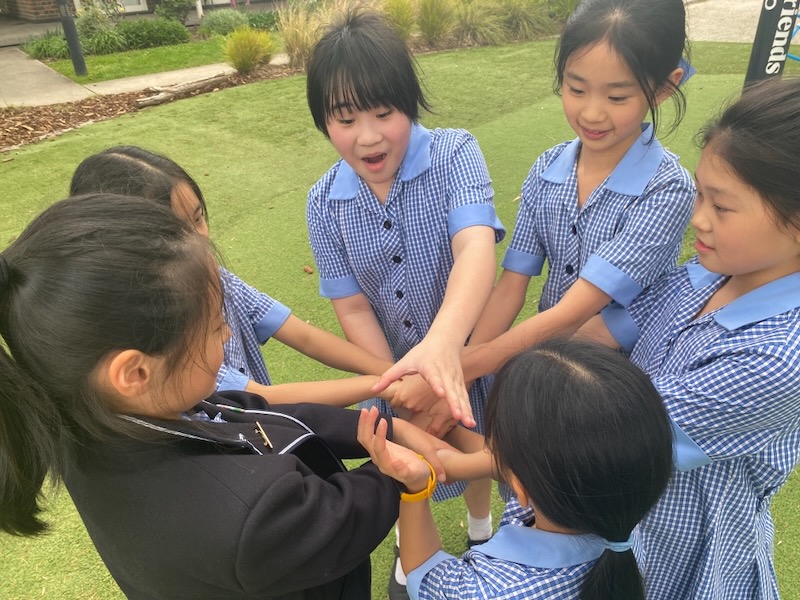
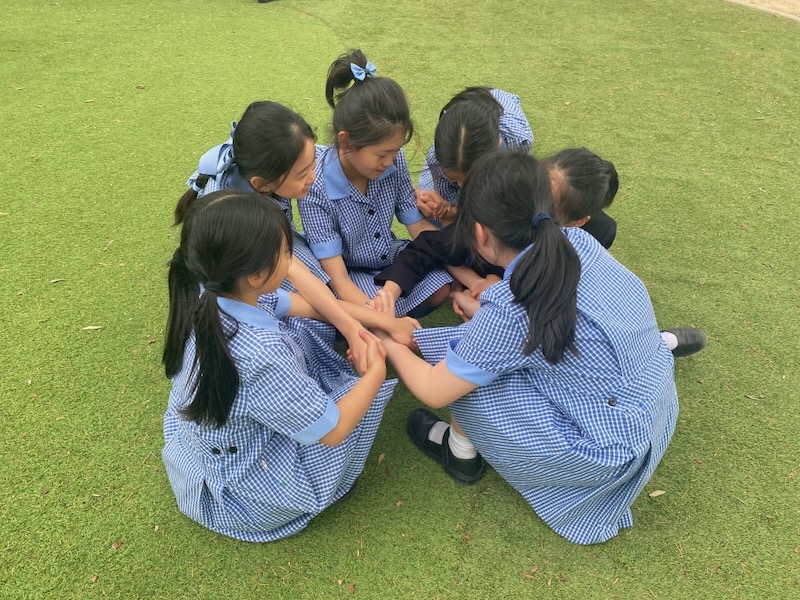
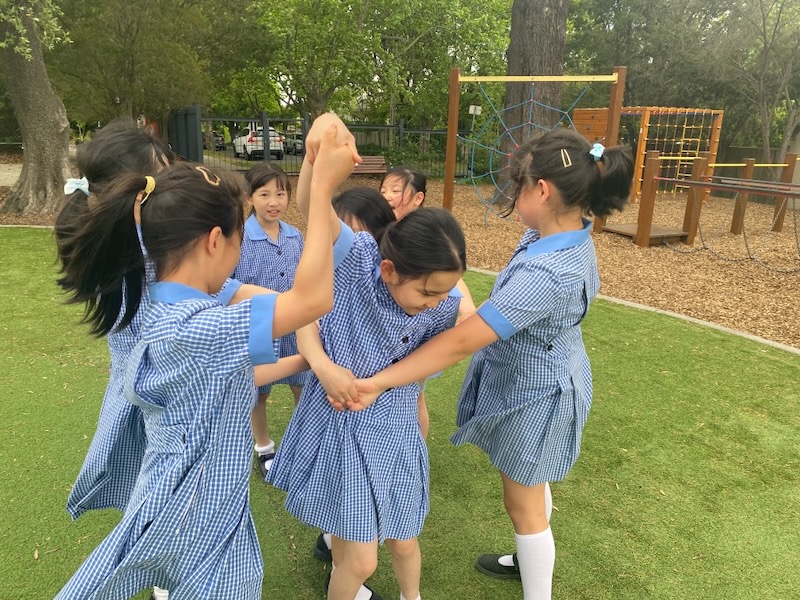
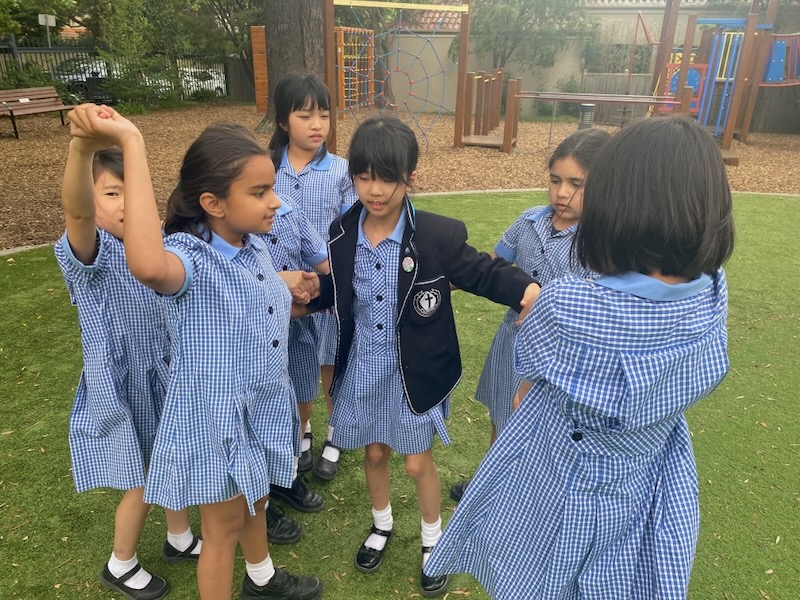
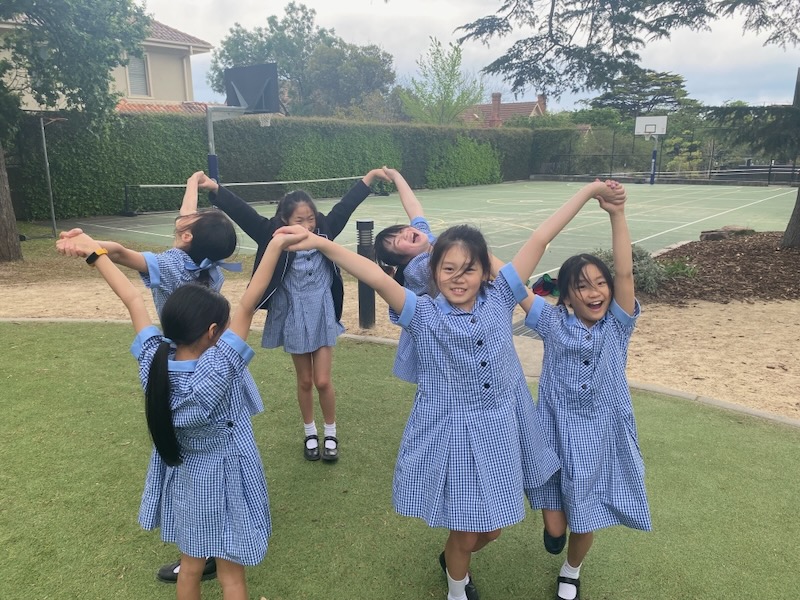
Jumping plays a fundamental role in childhood development, far beyond just a form of play. It is one of the key gross motor skills that supports children’s overall physical and cognitive growth. Research shows that activities such as jumping engage the vestibular and proprioceptive systems, which are essential for balance, body awareness, and coordination.
Jumping helps children understand where their body is in space, a concept known as proprioception. This understanding is crucial for tasks that require spatial awareness, such as climbing, navigating obstacles, or even sitting still.
Each time a child jumps, they are building muscle strength, particularly in their legs and core. This strength is essential for other physical activities like running, climbing, and even tasks like sitting on the floor and standing up from a seated position.
Mastering jumping can be a significant confidence booster for children. Studies indicate that children who are given opportunities to engage in physical activities that challenge their balance and coordination develop a greater sense of self-efficacy, leading to improved emotional resilience and problem-solving skills, both vital to managing the challenges they will be presented as they move through school.
Jumping also activates both hemispheres of the brain, integrating sensory input and motor control, which supports cognitive skills like attention, memory and problem solving. In fact, research links physical activity to improved academic performance, demonstrating that active children are often better learners.
By encouraging children to jump and engage in similar activities, we are not just supporting their physical fitness but also setting the stage for their academic, emotional and social success.
Kim James
Head of Health and Physical Education – Junior School
The Principal outlines the School’s updated Smart Devices Policy and our commitment to digital wellbeing through clear and consistent smart device expectations across the School.
The term is in full stride, with students embracing academic challenge, cultural celebration, service, House spirit and sporting excellence across a vibrant start to 2026.
A strong sense of belonging and participation has shaped the start of term, as students embrace leadership, learning, House spirit and opportunities to grow across the Junior School.
